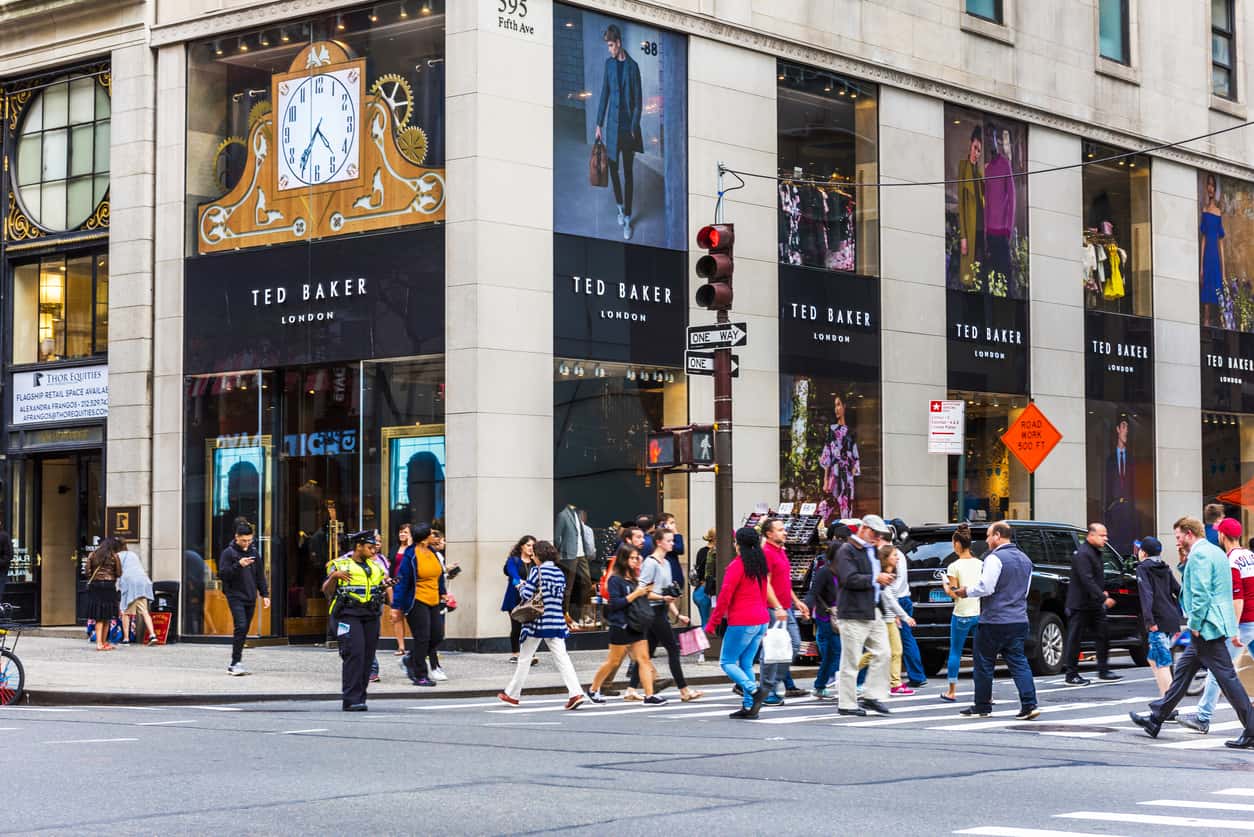
iStock.com/resulmuslu
Ted Baker Plans To Call in Administrators
March 20, 2024
More than a year after it sold itself to the U.S.-based fashion group Authentic Brands Group (ABG), the British fashion retailer Ted Baker plans to appoint administrators, according to a spokesperson for ABG.
The announcement follows closely after No Ordinary Designer Label (NODL), operating under the Ted Baker brand, ended its collaboration with Dutch firm AARC just six weeks ago on Jan. 29.
According to the British newspaper The Evening Standard, hundreds of jobs could be on the line as an independent director of NODL, the holding entity for Ted Baker’s retail and online operations in the UK and Europe, “filed for intention to appoint administrators to the business.” Giving reason for this matter, parent company ABG said the business was left with “a significant level of arrears.”
“Despite our tireless efforts, the damage done during a period under AARC in which NODL built up a significant level of arrears was too much to overcome,” ABG’s chief strategy and transition officer John McNamara said. “We wish that there could have been a better outcome for the Ted Baker employees and stakeholders. It is hopefully some consolation for customers that NODL will continue to trade online and in stores.”
McNamara added, “We remain focused on securing a new partner to uphold and grow the Ted Baker brand in the UK and Europe where it began.”
ABG also owns brands like Forever 21, Billabong, and Eddie Bauer. It acquired the previously publicly traded Ted Baker in 2022 in a deal worth £211 million ($269 million). It was reported to have come in last year with additional backing as Ted Baker had major challenges securing funding.
“The prospect of job losses is worrying, but if a buyer can be found, then the administration process can hopefully save the brand, business and as many jobs as possible,” Tom Pringle from law firm Gowling WLG said. “Many other businesses are facing similar pressures, and getting advice from restructuring professionals at the earliest opportunity gives companies the best chance of a positive outcome.”
Gary Hemming, commercial lending director at abcfinance.co.uk, added, “Ted Baker has faced a torrid few years after their founder left the business in 2019 following allegations of inappropriate behaviour. This had led to a real domino effect for the brand as reputational damage coupled with instability in the company hierarchy saw Ted Baker head into the pandemic in a sorry state. While most retail brands reacted quickly and adapted to the new market, there was a feeling that Ted Baker, already reeling, failed to do so.”
Recent News
Premium and Healthier Food Options Gain Traction
As consumers become more mindful of their spending, the global sales of cooking ingredients and meals saw a notable increase of 4.4% in 2023, driven by inflation and higher commodity prices, according to Euromonitor International. This trend underscores a shift in consumer behavior towards more economical choices while still showing a preference for premium, healthier, and environmentally sustainable options.
Dairy Manufacturers Inc. Issues Voluntary Recall of Baby Formula
In a significant move, Dairy Manufacturers Inc., a Texas-based company, has initiated a voluntary recall of several baby formula products after they were found to be noncompliant with U.S. Food and Drug Administration (FDA) regulations. The recall encompasses all lot codes of three specific products: Crecelac Infant 0-12, Farmalac 0-12, and Farmalac 0-12 Low Lactose. This announcement was officially published on the FDA’s website on Saturday.
Fitness Equipment to Become $18.4 Billion Market
The global fitness equipment market is projected to reach $18.4 billion by 2033, growing at a CAGR of 3.02% from 2024 to 2033, according to Allied Market Research. Key drivers include the integration of Internet of Things (IoT) technology in fitness devices and the rise of corporate wellness programs. IoT-enabled equipment captures workout metrics in real time, enhancing user engagement and offering personalized insights. Corporate wellness initiatives promote physical activity in the workplace, increasing demand for fitness equipment in corporate gyms.
Walmart Ends Partnership with Capitol One
Walmart has officially ended its consumer credit card agreement with Capital One, marking a significant shift in the retail giant’s financial partnerships. This decision follows a series of disputes over customer service issues that culminated in a legal battle and a federal judge’s ruling.

